One thing is clear in this fast-paced digital business world, it is no longer optional for any business to have an online presence but rather a necessity for the company to survive in a competitive environment.
Due to the exponential growth of eCommerce platforms, the market has developed an increased appetite for robust and efficient hosting solutions.
Here managed cloud hosting is an outstanding option among many other trusted hosting alternatives giving unbeatable scalability, reliability as well as performance.
This article specifically deals with why managed cloud hosting solutions are necessary to empower and keep a vibrant eCommerce store.
The evolution of eCommerce and its hosting needs
E-commerce has revolutionized the way of business by making it easy to target large-scale markets and creating platforms for the establishment of worldwide business relationships. The digital platform provides opportunities for all enterprises ranging from small startups to well-established companies to reach out to customers and effectively sell their products or services.
However, what is the significance of having a decent online shop?
Well, by 2027, global online sales are expected to reach a whopping 8.03 trillion US dollars, a huge jump from the 2019 figure of 3.53 trillion.
On the other hand, even though e-commerce is a collection of products and marketing, it does not end here. One key area that plays an important role in the technology of any such venture since this can decide if their operations would be supportive.
It brings collectively the fee benefits of shared hosting with the overall performance blessings of committed servers, developing a bendy and manageable environment for eCommerce companies to thrive.
At the start aspect, committed servers offer robust overall performance however come with a complex setup and hefty useful resource management expenses.
To tackle these challenges, services like Cloudways provide an alternative. Cloudways offers a problem-loose and scalable cloud website hosting platform, bypassing the limitations of conventional hosting strategies.
It brings collectively the fee benefits of shared hosting with the overall performance blessings of committed servers, developing a bendy and manageable environment for eCommerce companies to thrive.
Why is reliable hosting essential for your eCommerce site?
For an eCommerce site, reliable hosting is the backbone of achievement inside the pretty aggressive digital market. With online shopping turning into increasingly more critical, customers expect seamless stories when browsing and purchasing merchandise.
A reliable hosting solution ensures that your eCommerce website is consistently available, minimizing downtime that could result in lost sales and frustrated customers.
Beyond uptime, reliable hosting also plays a critical role in providing fast page loading speeds, which are essential for keeping visitors engaged and optimizing conversion rates.
Slow-loading pages can lead to higher bounce rates and lower search engine rankings, ultimately impacting your bottom line.
To show you why slow web hosting can harm your online store, take a look at these statistics:
- 40% of consumers will abandon a website that takes more than 3 seconds to load. (Forbes)
- 60% of consumers abandon purchases due to poor website user experience, costing e-commerce companies billions (PR Newswire)
- Retail and travel sites – 79% of online shoppers who experience a dissatisfying visit are less likely to buy from that site again. 64 percent would simply purchase from another online store. (hobo)
Furthermore, customer data security is vital for eCommerce. A good hosting provider ensures strong protection for payment and personal info, keeping them safe from cyber threats. This builds trust with customers and keeps you compliant with regulations.
Lastly, it is important to keep in mind that as your eCommerce business grows, scalability becomes crucial.
A reliable web hosting answer like Cloudways helps you to scale asset results easily to address more site visitors and sales. On the day of giving up, it is not pretty much preserving your web page online – it is approximately building a strong foundation for a lasting boom in the e-commerce world.
What are the advantages of managed cloud hosting?
Managed cloud hosting services seem a way to cope with the disadvantages of standard hosting methods, and also present a few additional benefits eCommerce companies cannot afford to miss.
Unlike the classical internet hosting solution, which relies on physical servers, cloud data hosting implements cloud and virtualization technologies instead of one physical server to share the resources.
Such scalable architecture would, on the one hand, deal efficiently with reliability issues but also, will make quick scale-up feasible as more visitors seek products (that sites offer) or closer their search to these products.
Let’s explore some of the benefits of managed cloud hosting:
- Scalability: Cloud hosting with a dedicated managed cloud hosting team undoubtedly delivers greater scalability as compared to other solutions. eCommerce websites tend to capture varying numbers of traffic with no difference at all as they are either during promotions or sales seasons. On managed cloud hosting, the intervention of resources can be allotted and it can be expanded or reduced based on demand as well, guaranteeing the best performance and user experience regardless of traffic spikes.
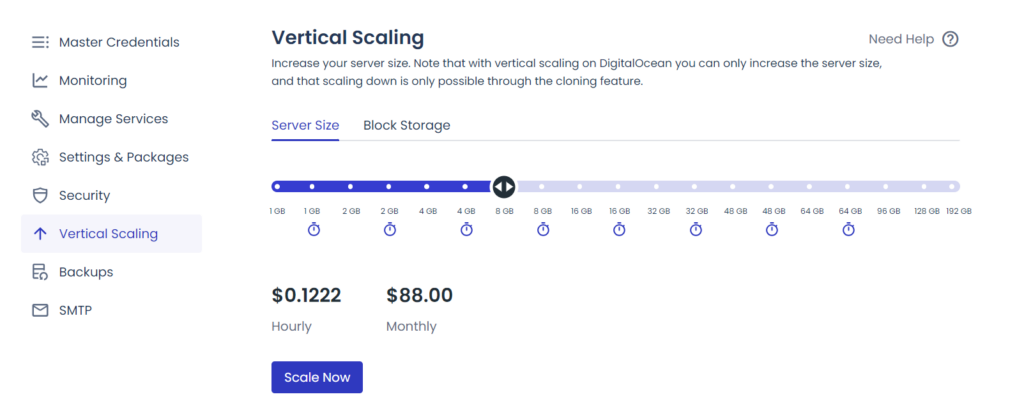
- Reliability and Uptime: For an online store, even minor downtime is a disaster — leading to lost sales, diminished customer trust, and worst of all, damage to brand reputation. Managed cloud hosting providers offer a level of robust infrastructure and redundancy measures that prevent the risk of downtime, ensuring maximum uptime for your eCommerce website. In addition, cloud hosting services generally feature built-in backups and disaster recovery solutions, minimizing the potential for data loss as well as downtime.
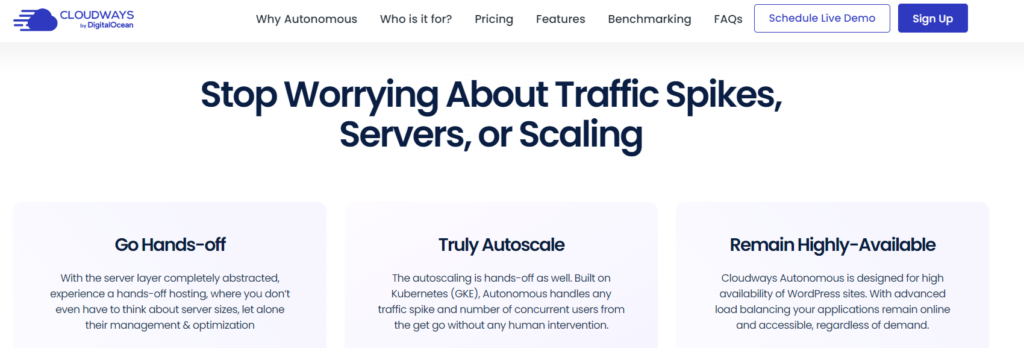
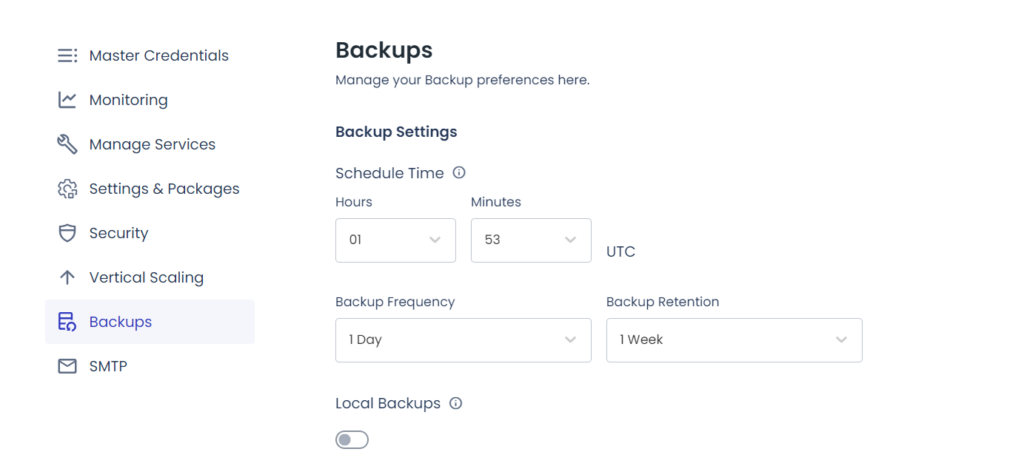
- Security: In eCommerce, there is no bigger consideration than security. Managed cloud hosting providers use advanced security measures to protect customer payment and personal data, including firewalls and encryption, and intrusion detection systems to ensure that their servers meet the highest possible standards. More generally, cloud hosting environments are frequently subject to security audits and compliance certifications. This means that not only are customers kept safe, but so are the merchants who serve them.
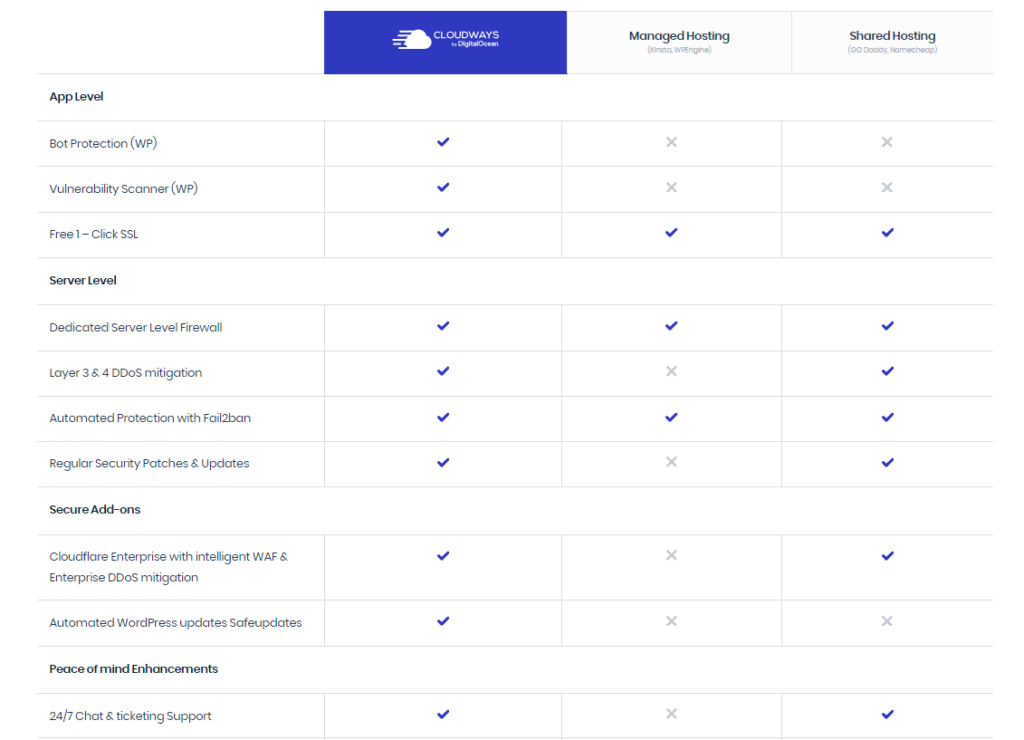
- Performance Optimization: Ecommerce websites depend on such speed and performance to meet user expectations and maximize conversion rates by leveraging all the tricks common to managed cloud hosting solutions, such as caching mechanisms, content delivery networks (CDNs) and other optimization techniques to speed up page load times and generally improve performance. In addition, cloud hosting providers usually offer robust monitoring and analytics tools that enable them to identify and eliminate such bottlenecks proactively.
- Cost-Efficiency: Although managed cloud hosting might require higher initial costs than traditional web hosting options, it is characterized by a pay-as-you-go pricing model that may end up saving e-commerce businesses some money. Merchants can avoid over-provisioning and cost-effectively scale their host infrastructure by paying for only what they have used up as resources. Additionally, managed cloud hosting eliminates the need for in-house IT staff to manage and maintain servers leading to reduced overheads and release of resources which are channeled towards the core business undertakings.
- How to implement managed cloud hosting for eCommerce success?
- Considering managed cloud hosting as an alternative solution demands efficient planning and running of the migration process to minimize the negative impact on the performance of an e-commerce website and get the most out of your choice.
- Here are some key considerations for implementing managed cloud hosting: Here are some key considerations for implementing managed cloud hosting:
- Assessment of Hosting Needs: For the transition of the online store into the managed cloud hosting environment this step-by-step approach should be taken as the essence, including assessment of the system’s performance, traffic volume and space requirements. The evaluation will be based on determining which configuration of cloud hosting will be most useful as well as on selecting the provider that is at the intersection of our goals and budget demands.
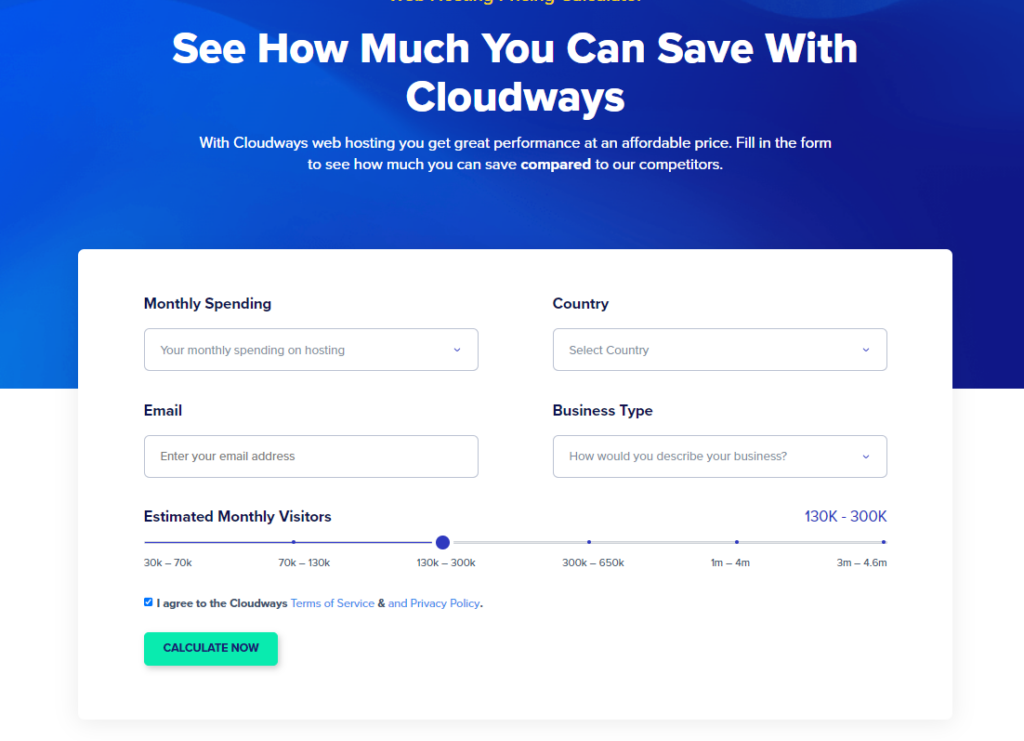
- Choosing the Right Provider: It is key to have a reliable platform managed by a cloud hosting provider with an excellent reputation and extensive experience for the eCommerce venture of your business to succeed. The reliability, scalability, security measures, technical support mechanisms, and pricing paths will have to be considered among the others when the provider’s choice is being evaluated. It’s suggested to investigate several sellers and assess them as per the specific needs of the eCommerce store. Therefore, an educated decision would be taken.

- Migration Strategy: The process of migration from an existing hosting environment should be planned and executed properly to minimize downtime and disruption. This could include transferring site files, databases, settings as well as DNS over to the new cloud infrastructure. Involving a hosting provider closely and leveraging their experience will make the whole migration process easier and mitigate any possible problems that may arise.
- Performance Optimization: Continuous performance optimization is important to ensure a good customer experience on the eCommerce store and increase conversion rates after it’s hosted on a managed cloud platform. It might be done through adjusting server configurations, optimizing code and content delivery systems, caching policies development, and use of monitoring tools that point out system failures for prompt addressing.
- Continuous Monitoring and Maintenance: Hosted eCommerce environments are constantly being monitored for security threats, and potential performance issues and require maintenance to address them proactively. Many managed cloud hosting providers have powerful tools for monitoring systems’ health status, managing accounts 24/7/365 with technical support available always so that customers can maintain a secure high-performance online selling infrastructure.
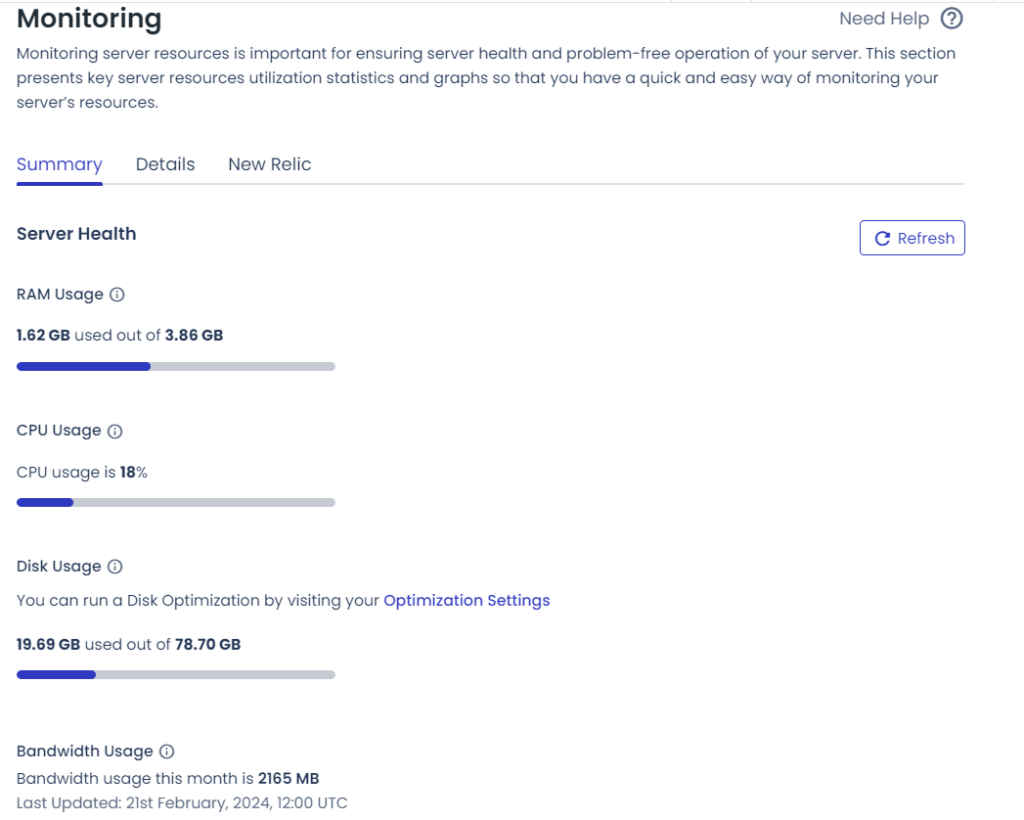
Conclusion
In the competitive arena of eCommerce, a strong and dependable online presence is crucial to succeeding. Managed cloud hosting solutions offer some interesting alternatives for eCommerce businesses that are looking forward to getting scalability, reliance, security and optimization of performance.
Enabling the power of cloud gives traders seamless scalability, maximum uptime, advanced security and cost efficiency in their eCommerce stores.
With careful planning, strategic implementation and on-going management, managed cloud hosting can be relied upon as a foundation for thriving in the digital age by building a successful eCommerce enterprise.




